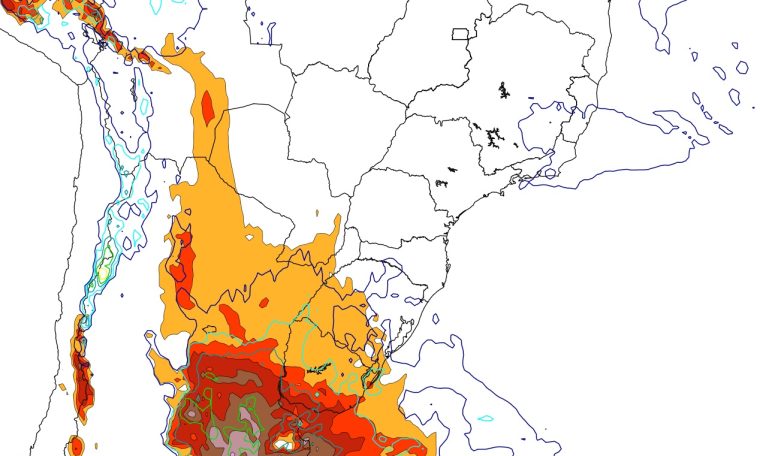
MetSul Meteorologia has forecast a very severe storm for the provinces of central Argentina between Tuesday afternoon and evening and dawn and Wednesday morning. The meteorological scenario is consistent with the formation of hurricane supercells that have the potential to produce very intense and destructive storms at some point.
Provinces such as La Pampa, Cordoba, Buenos Aires, Santa Fe and Entre Ríos are in the severe weather risk zone. Atmospheric conditions will deteriorate rapidly over the region in the second half of Tuesday and early Wednesday with the formation of several storm areas and extremely heavy clouds with peak temperatures of -80ºC or lower.
This is an especially dangerous situation in severe weather due to the high risk of locally very intense to violent storms with the potential for destructive wind and hail. The city of Buenos Aires and its metropolitan area, the so-called Conurbano, are among the places at high risk of very severe weather.
Analysis of atmospheric datasets estimated by the Numerical Model Package suggests storms with locally torrential rain, but the greatest concern is with the potential for occasional severe to violent hailstorms – which can be large in some places – and wind. The storm. With the risk of downburst ( downdraft) and even sometimes the formation of tornadoes.
The maps below show hail forecast for Tuesday afternoon and evening based on the North American GFS model. It has been observed that the probability of hail is very high in central Argentina, especially in the provinces of La Pampa, Cordoba, Santa Fe and Buenos Aires.
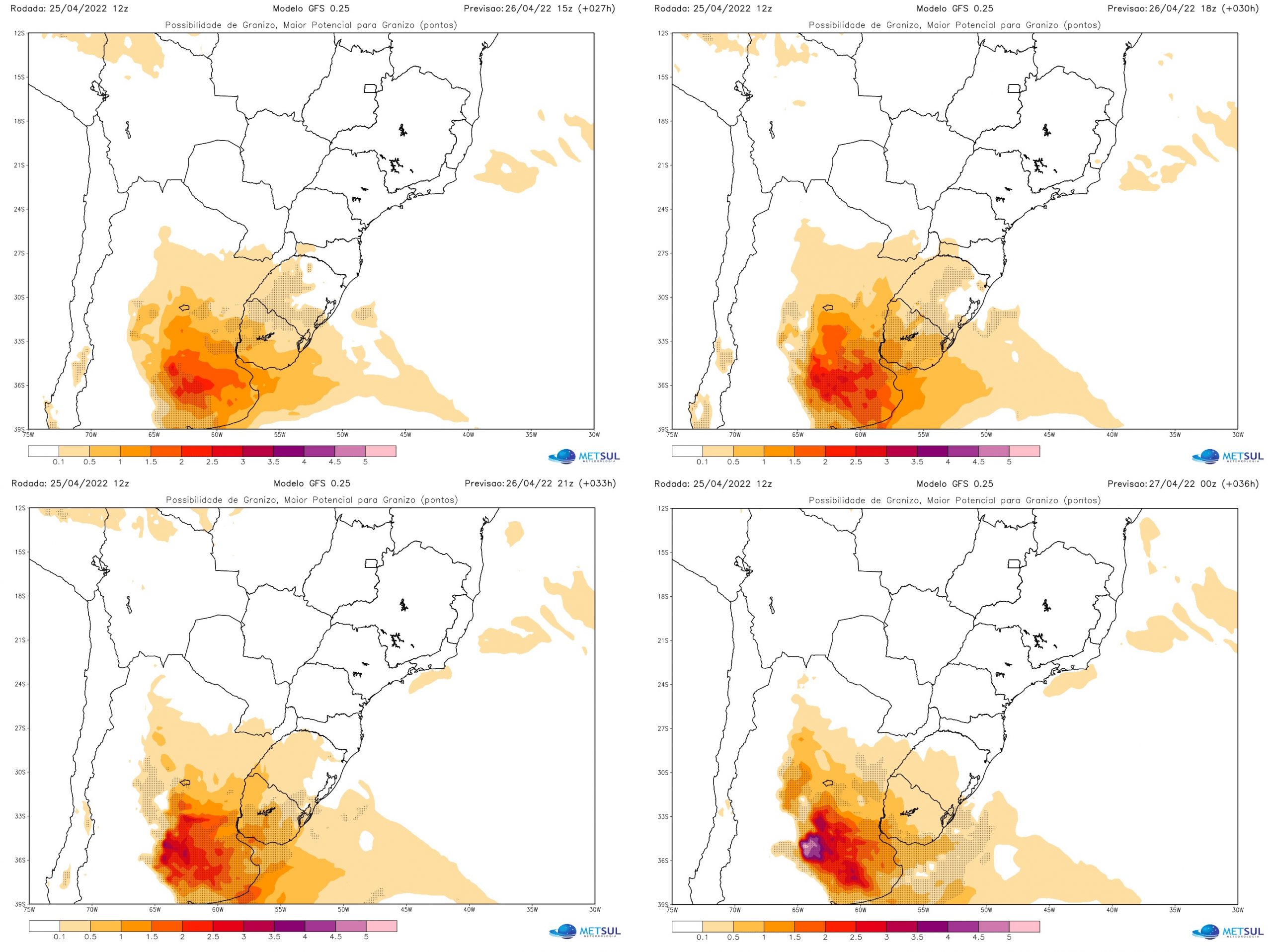
The scenario is critical for severe weather in central Argentina in one of the most dangerous conditions for violent storms to hit the neighboring country in recent days. From this Tuesday to Wednesday, all the elements that increase the chances of a storm will be present.
First, a low pressure center will operate in an area with very low surface pressure values. Models indicate a probability of 995 hPa to 998 hPa in the province of Buenos Aires, with values below 1,000 hPa being particularly important for severe weather.
Second, a low-level jet stream (JBN or LLJ) will deliver very warm air to the area where the storm will form. The jet will be very rapid, with wind between 1000 and 2000 m altitude, from 100 km/h to 150 km/h. As the cold front advances, the diverging wind pattern (shear) will be vast and favorable conditions will be created for tornadoes.
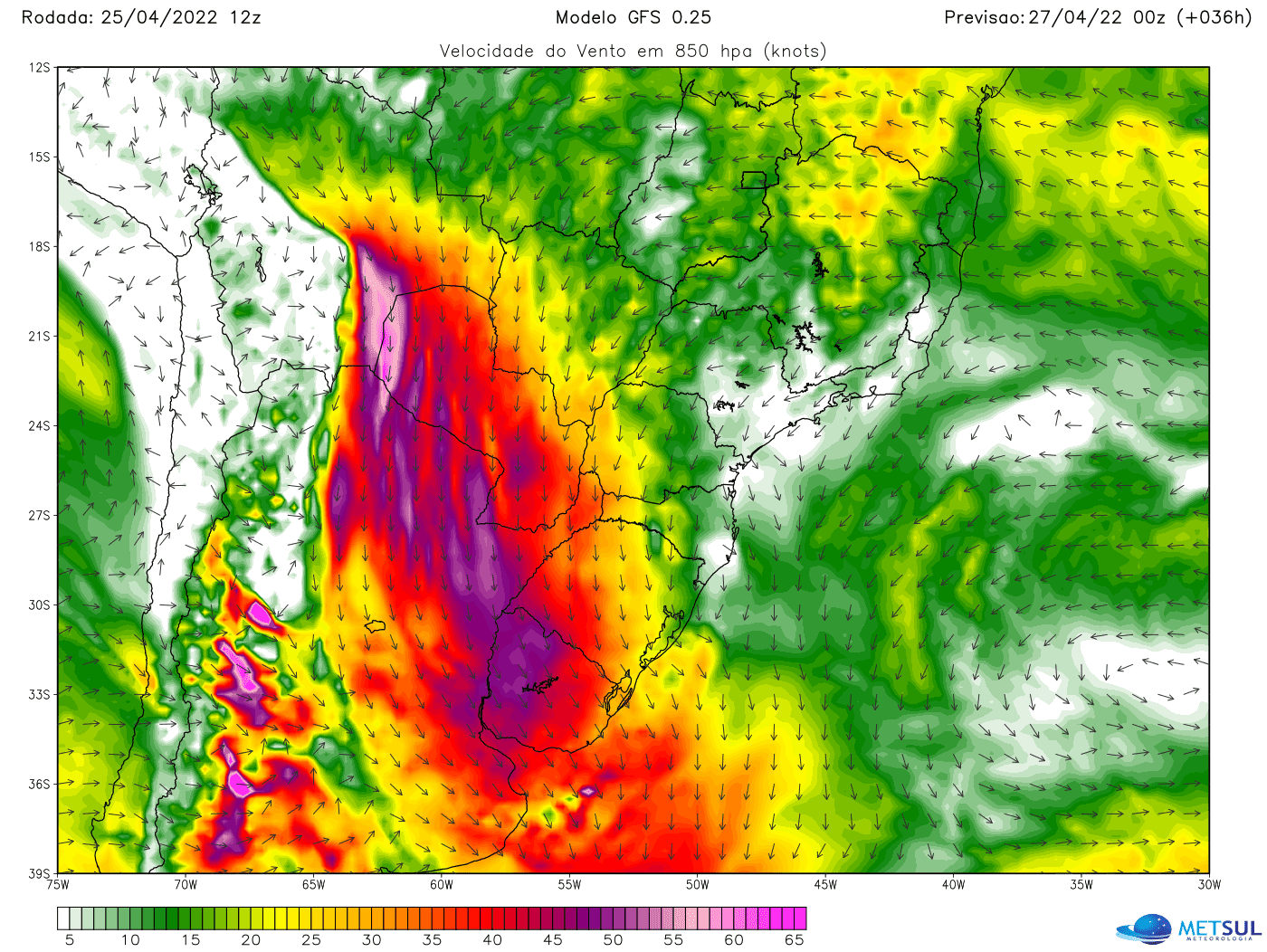
Third, a cold front will advance over the very warm air mass for this time of year in an environment of extreme instability with low atmospheric pressure and a very intense low-level jet stream.
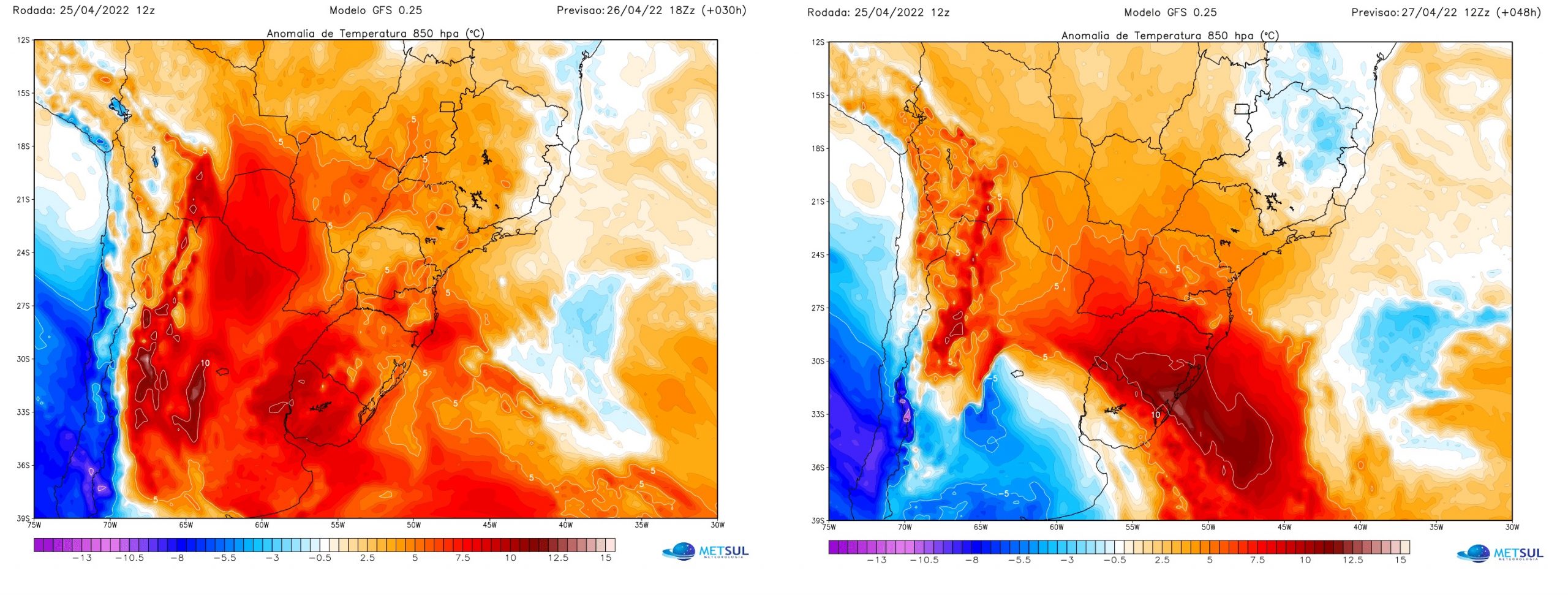
Therefore, numerical models are projecting an extremely high volatility index for central Argentina. Indices such as CAPE, LIFTED, SWEET and SHOLTER have values predicted by numerical models between Tuesday afternoon and the level of very severe weather between early evening and Wednesday.
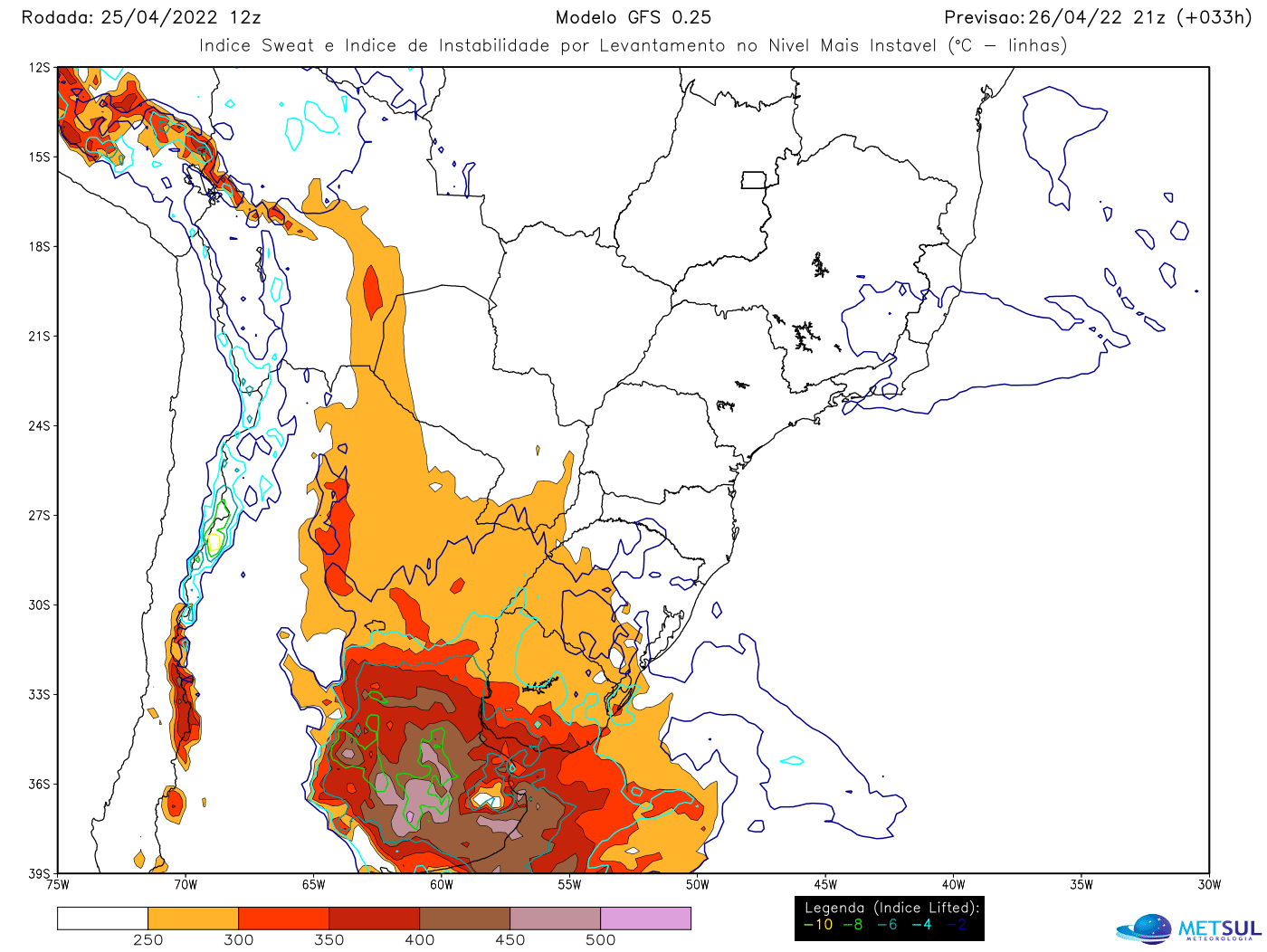
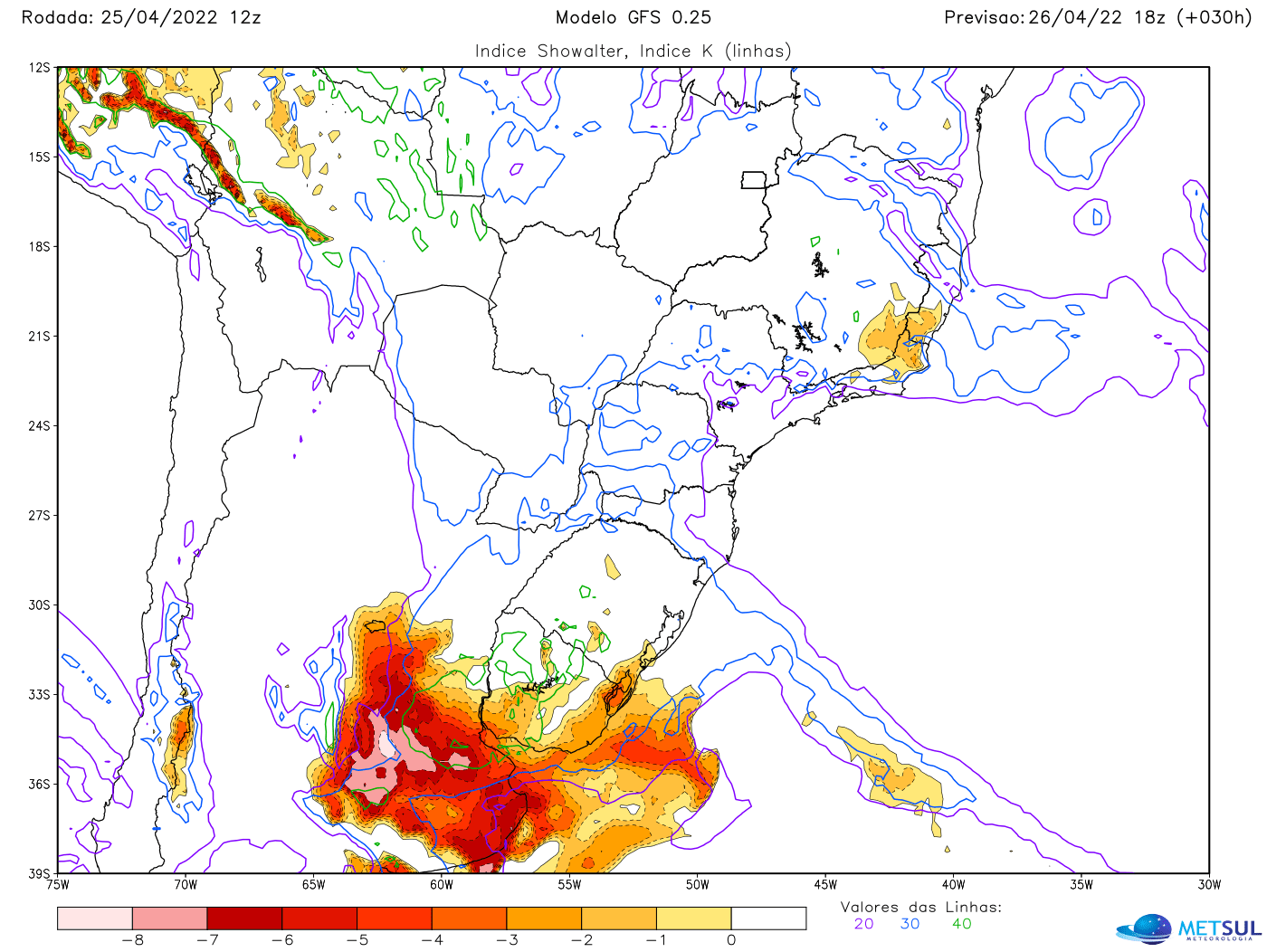
It is important to emphasize that This critical scenario for severe to violent storms is for central Argentina and not for Rio Grande do Sul. Strong instability during the alert period will also affect Uruguay and should move to the gaucho region, but, although there is a risk of hurricanes in Rio Grande do Sul, the scenario in Argentina is not as dire as expected.,
How to consult maps
MetSul Meteorologia Subscribers have access to all the maps in this bulletin and many others with accumulated rainfall, temperature, frost risk, hail risk, atmospheric instability index for storms, forecast graphs and much more from our high resolution model WRF . And the main international meteorological models such as North American GFS, European, German Icon, Canadian and others. Consult our Maps section and subscribe at metsul.com/subscribe.



